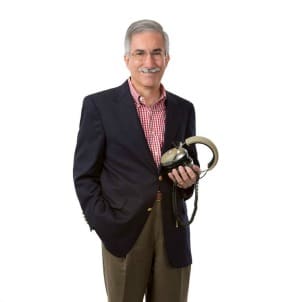
(By John Garziglia) Bubba Clem is being massively sued for his acknowledged attempt to rig Nielsen PPM ratings. Once again, it appears that Bubba will keep some stellar members of our legal profession gainfully employed. This lawsuit will cost both Nielsen and Bubba significant sums in legal expenses if Nielsen zealously prosecutes it.
A lawsuit such as this one will involve document discovery, (Bubba being asked to cough up just about every email he ever wrote that is arguably relevant to ratings and listeners), extensive depositions, and possibly a lengthy trial.
Nielsen is evidently trying to make a point. Also lurking in this lawsuit is the suggestion that this is not the first time that Bubba has engaged in such ratings distortion activities. Therefore, Nielsen’s lawsuit may be as much about doing depositions and discovery against Bubba and his cohorts to find out more about his past activities as it is for this specific incident.
The essential question Bubba and his attorneys must now be pondering is how much money will Nielsen take to dismiss its lawsuit and go away. If this lawsuit is about Nielsen trying to make a point, and if Nielsen believes there are additional undiscovered instances of similar ratings distortion activity by Bubba, there may not be any amount of money Bubba can offer that will lead to a settlement.
Therefore, we may see this legal action unfolding over the coming months and years as a continuing warning to others in our industry that Nielsen takes its ratings integrity seriously.
Ratings distortion is just one of the ways radio personalities can do wrong. Let’s also take a look at some of the other stupid things that a radio personality can do to get into trouble.
Readers may recall a similar, more general, listing of broadcast station wrongs a little more than a year ago in a Radio Ink article titled “The Things Employees Do.” That listing focused on all radio station personnel. Ironically, that commentary was likewise precipitated by a Nielsen Audio claim in which an L.A. market employee failed to report a ratings-participant family member.
Rather than list all of the ignorant things that radio personalities can do in life (as that list would be endless), below we focus on the unique opportunities that radio personalities in the broadcast station setting have to do wrong.
At the top of that list has to be payola, an act that can cause the loss of an FCC broadcast station license and result in jail time for the perpetrator. Payola is the acceptance of under-the-table payments or benefits from a recording company, or promoter, to a radio personality or programmer in exchange for playing certain music without a sponsorship ID. Payola is a criminal act as well as a danger to the FCC license of the radio station. It is the absence of a sponsorship ID that transforms a payment of money, goods, or services for the playing of specific music into a criminal act and an FCC violation.
FCC violations covering the absence of a sponsorship ID do not concern just music. Any programming broadcast in exchange for payment, whether the payment flows to the radio personality or to the broadcast licensee, must be accompanied by sponsorship ID. A fertile area in which radio personalities can violate this rule is the acceptance of restaurant meals or a nightclub’s free drinks in exchange for favorable on-air mentions.
News people are not immune to the FCC’s sponsorship ID requirements. The FCC has warned lazy news producers that the broadcast of pre-packaged news blurbs and actualities from entities with an interest in the subject (i.e. a press release dressed up as a pre-packaged, ready-to-roll news story), absent a sponsorship ID, can be a violation of FCC rules. This issue arose in the past few years with TV news releases but is equally applicable to materials delivered by corporate publicity agents to radio stations.
On-air contests are another fertile ground for air personality wrongdoing. Even though the FCC will shortly be allowing radio stations to state full contest rules on a website rather than through a tedious on-air reading, none of the FCC’s rules regarding adherence to those contest rules is altered.
If the radio station is giving away $10,000 during morning drive, it is not acceptable to promote this contest in afternoon drive by beseeching listeners to keep listening because “any moment now you could win.” Even contests meant as a practical joke – the giving away of the “keys” to a luxury automobile – can attract adverse FCC scrutiny if a complaint is filed. Rigged contests are verboten.
While jail time is not involved with FCC contest rule violations, the radio station itself can spend tens of thousands of dollars to defend against an allegation of FCC contest rule violations.
Libel and slander are instantaneous and potentially expensive ways for radio personalities to get into trouble with on-air content. As I commented in the previousRadio Ink article, every air personality needs to have at least a passing appreciation of what constitutes libel and slander.
My Radio Ink article on sports commentary surrounding the Penn State tragedy several years ago (“When Does Opinion Become Slander?“), and another Radio Ink article on air personalities (“Are You At Risk If Your DJ Is Wrong?”), both touch on many aspects of libel and slander.
While not foolproof by any means, a “do unto others” assessment of any on-air commentary should cause an air personality to pause before speaking – ask what would I think, and how angry would I be, if someone said what I am about to say on the radio about me?
Indecency has not been in the FCC’s headlines lately other than for a huge fine levied earlier this year against a television station for showing a three-second website screen shot with a penis video in the border area (sadly, this is the same television station that suffered the recent tragedy of on-air murder of its personnel). Just because the only FCC indecency action in many years is against a television station, however, radio air personalities should not be complacent.
The FCC shows no sign of backing off the prospect of significant fines for indecency rule violations. While the FCC’s indecency standards are difficult to concisely elucidate (even the FCC has difficulty explaining where and how the indecency line should be drawn), a good FCC indecency rule-of-thumb is, if you would not say what you are about to say to your nine-year-old daughter, then it may be actionably indecent under the FCC’s standards.
Finally, every air personality should know that telephone call-out bits are only acceptable if the called party is first informed that the telephone conversation is being broadcast or recorded for later broadcast. A lengthy listing of FCC enforcement actions against broadcast stations for violations of this rule is available HERE.
The FCC rule requiring prior notice before broadcasting or recording for later broadcast a telephone conversation negates most of the potentially funny phone calls that could be made to governmental officials, cable company service representatives, and spouses of the competing station’s air personalities. Unless a called or calling person has a reasonable expectation that the phone call is being broadcast or recorded for later broadcast, the person must be informed in advance.
Air personalities get into trouble for a lot more than what is described above. And it goes without saying that some of the best in our business often go right up to the line, or over it. But malfeasance can be potentially expensive for both the employer radio station and, as this ratings distortion case shows, for the air personality himself or herself.
Often it takes an extreme example to focus attention on particular wrongdoing. Here, Bubba is being sued by Nielsen for in excess of a million dollars. But, in addition to ratings distortion, there are many times that I have had to defend a broadcaster or air personality against allegations of payola, plugola, a failure to conduct contests in conformance with the stated rules, libel, indecency, or a lack of notification for the broadcast of telephone conversations. Possibly that number in the future will be reduced if air personalities are more cognizant of the particular traps for wrongdoing uniquely presented by being on the air.








